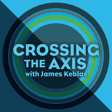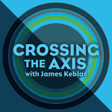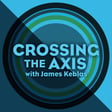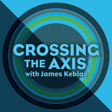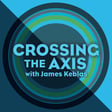
The Case for Keeping the Team In-House with StoryFarm
John Sherman is the CEO of StoryFarm out of Baltimore, Maryland. John and his team have been (very) successful creating a host of different types of videos for clients like Dell, McDonalds, ExxonMobile - you name it. The unique thing about StoryFarm? In this age of decentralized, on-demand video work, they've decided to stick to the old ways of doing things and keep all of their employees salaried, and in-house.
In this episode, we talk with John about why this seemingly old-fashioned approach to business management actually yields some surprising advantages in market, and how it has helped them grow to over $2.5M in revenue. We discuss how they are better able to serve their clients, how their potential clients love knowing their work is going to be all in-house, and how sometimes it's more about journey than the destination when it comes to video production work.
